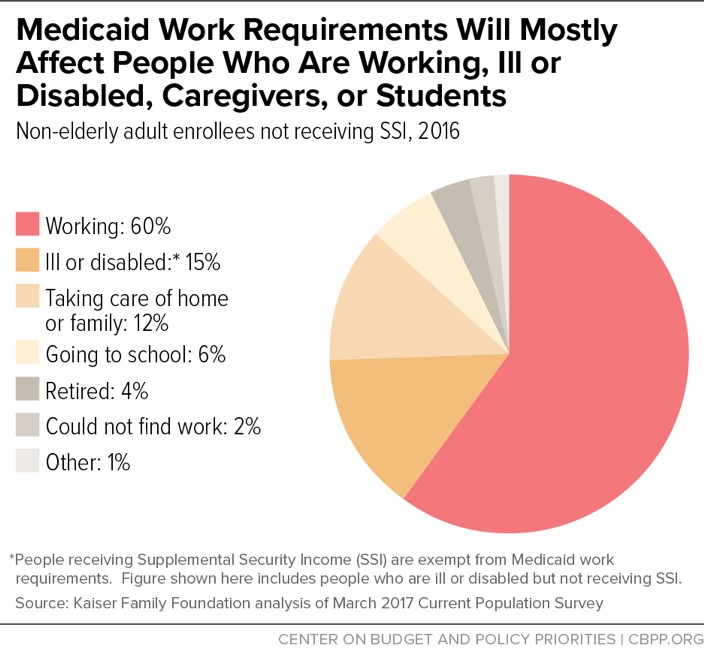Medicaid connects health coverage with people who need it, including seniors, children, people living with disabilities, and people who work in jobs that don’t pay enough to make ends meet. New research illustrates just how effective Medicaid is in improving peoples’ health, and just how dangerous limitations to access can be.
New research from the Center on Budget and Policy Priorities shows Medicaid’s effectiveness: recent Medicaid expansions, part of the Affordable Care Act, resulted in an “estimated 39 to 64 percent reduction in annual mortality rates for older adults gaining coverage.” That’s a huge impact! More than 19,000 lives were saved because people were able to get the care they needed through Medicaid. This data illustrate that getting affordable health care coverage can be “literally a matter of life and death, particularly for people with serious health needs.”
That’s just one example of Medicaid’s lengthy history of producing good health outcomes. Here’s another: people are more likely to receive preventative care and have regular primary care visits.
However, even with plentiful research demonstrating its efficacy, Medicaid is under attack. Some states are requiring people to regularly report their work hours or their efforts to land a job in order to receive health care through Medicaid. These attempts ignore two fundamental realities: most adults who use Medicaid are working (see the chart below), and the characteristics of today’s labor market interfere with workers’ ability to get consistent hours.

Work reporting requirements pose problems for all involved:
- Work reporting requirements are ineffective and expensive and could result in people losing coverage as a result of systemic barriers, like irregular or inconsistent work hours.
- Work reporting requirements are burdensome for everyone involved. They introduce additional bureaucratic and expensive processes for counties, health care providers, insurers, employers, and participants.
- Work reporting requirements may make health care even more costly. When people lose their health care coverage due to paperwork hurdles, they may be more likely to turn to the emergency room for necessary health care. This has the effect of increasing costs while also not providing optimal care.
Now that work reporting requirements have been implemented in some states, it is clear that these policies are resulting in qualified people losing health care. As the first state to implement work requirements, Arkansas provides an important warning. More than 18,000 people lost their Medicaid coverage because of the implementation of work reporting requirements, and very few were able to regain it. Especially shocking: 49 percent of closed cases were related to a communications failure of some kind and not because it was determined they failed to meet requirements. Nobody should lose their health care coverage because of an address change that wasn’t processed correctly or because they had technical difficulties logging on to a website. Courts recently suspended the Arkansas work reporting requirement program, calling the requirement “arbitrary and capricious” and criticizing the state for not “consider[ing] adequately” what the impacts would be. The judge also wrote that challenges “must be balanced against the harms that plaintiffs and persons like them will experience if the program remains in effect.” For now, this harmful policy is on pause in Arkansas.
Other states are reversing course and choosing not to move forward with work reporting requirements. These states recognize that the research shows, time and time again, that access to affordable health care is a lifesaver. Research and facts matter.